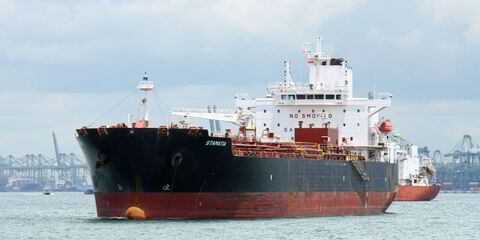Dry bulk industry association Intercargo has seen a dramatic increase in membership over the past year due to increasing concern over upcoming regulation and what some suggest could be a response to Qi, RightShip's controversial new safety rating system.
Lykiardopulo company Neda Maritime is the latest among 34 big-name owners to join Intercargo ranks in 2017. Others include Chios Navigation, Eagle Bulk Shipping, Kristen Marine and Samos Steamship.
Full membership is up more than 40% to 111 from 77 at the beginning of last year, while the number of bulkers signed up has increased 66% from 1,023 to 1,695 over the same period.
Intercargo says its membership amounts to 152 million dwt and represents 18% of the total dry bulk fleet.
This marks a considerable turnaround for the association that, due to the fragmented nature of ownership in the dry bulk market, has struggled to represent a significant proportion of the fleet.
Intercargo has been campaigning on key safety issues in dry bulk such as liquefaction, loading rates and piracy, as well as lobbying the IMO on issues such as its ongoing work on emissions and ballast-water regulation.
Intercargo secretary general Kostas Gkonis says its role in representing the dry bulk industry on safety and environmental issues has been key a factor in more owners signing up.
“One of the reasons has been the pace of regulatory developments and our capacity to participate at the IMO and round table [of shipping and shipbuilding industry associations] to influence developments and express our views,” he said.
Gkonis highlights the 2020 global limit on the sulphur content of fuel as a particular area for concern among its members.
He also says that improvements in the dry bulk market and Intercargo locking its fees to 2015 levels are other reasons behind owners' increasing membership interest.
Others point out that many new members are from Greece, which makes up a large proportion of the ownership of the global dry bulk fleet. The strong Greek influence at Intercargo, now headed by Anangel Maritime Services managing director John Platsidakis and with the secretariat headed by Gkonis, may also have helped rally Greek support.
RightShip’s digital big-data predictive ratings system Qi, which has been in place for over a year, may have played a part in encouraging Intercargo membership.
Since the safety ratings agency introduced its automated ratings system, some owners have found their vessels downgraded by Qi's new algorithms.
Because Intercargo membership criteria sets a high safety performance standard, simply by joining the association a shipowner can earn favourable ratings points under Qi.
Although RightShip has been regarding Intercargo membership favourably for many years before Qi, observers suggest those that have been downgraded by Qi may now be turning to Intercargo to boost their ratings.
However, Gkonis says that Intercargo has maintained the robust standards of its membership safety criteria. He says that latest figures from Equasis demonstrate that Intercargo membership continues to outperform the average port state control performance of the dry bulk industry by some measure.



